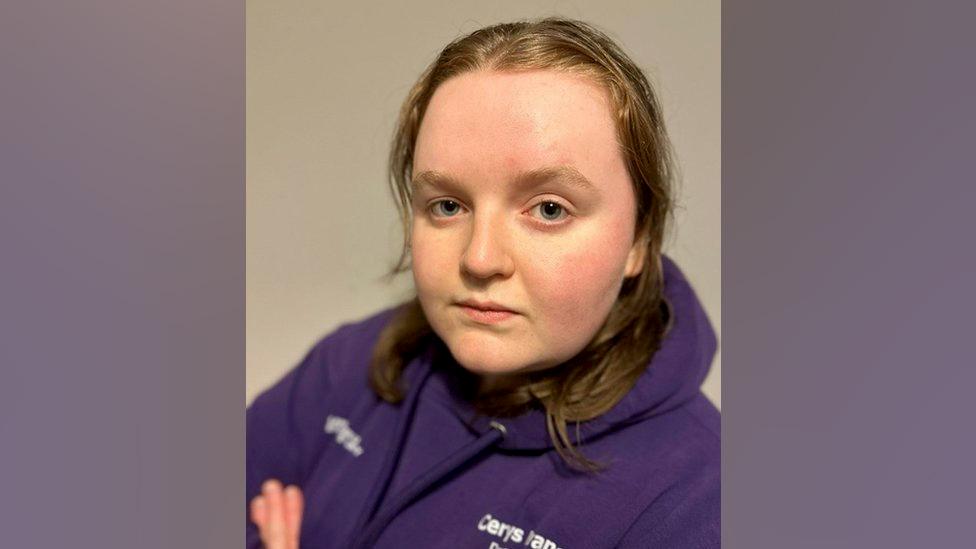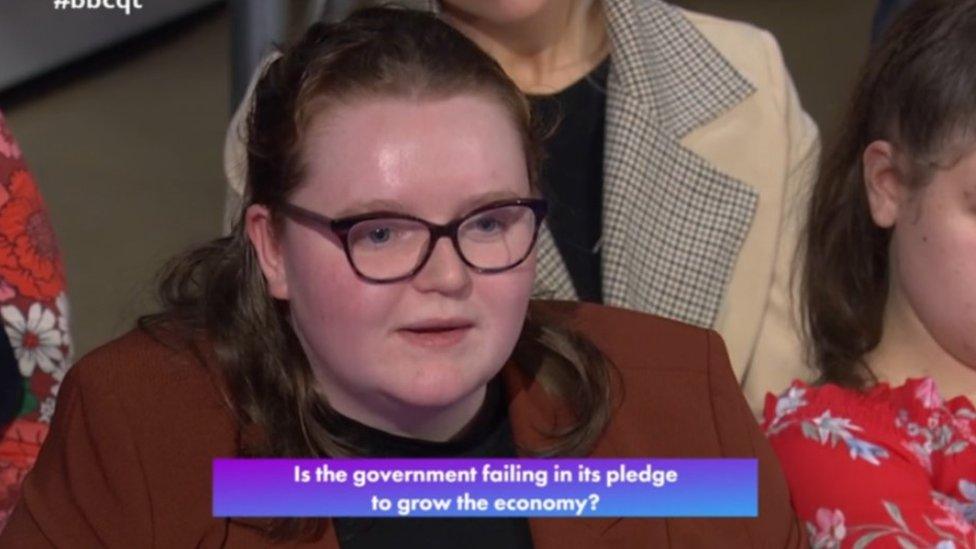Lancaster University: Students unable to afford food for days, union says
- Published

Cerys Evans said the situation had left some students at "breaking point"
Students caught up in the cost-of-living crisis are unable to afford food for up to three days, a student union leader has claimed.
Cerys Evans, president of Lancaster University Student Union (LUSU), described the situation as "desperate".
A campus "supper club" gave out 500 meals in three weeks, she said, with some students "at breaking point".
Lancaster University said it had "significantly increased" funding for students struggling with living costs.
The Department for Education (DfE) said it had increased loans and grants for living costs for a further year, and had frozen tuition fees for the seventh consecutive year.
Ms Evans told BBC Radio Lancashire that anxiety among students "around how they can afford to eat, to heat their homes, is sky high".
The student union was struggling to meet soaring demand for the food bank it ran on campus, she added.
'Only hot meal'
Ms Evans said: "We have a lot of students who are coming in and who, for one reason or another just feel that they have fallen through the cracks.
"The current student funding systems for maintenance loans relies a lot on parental contributions.
"But with the cost of living increase, the recession, people's parents are struggling to pay their own mortgages, let alone pay the rent for their child."
Ms Evans also raised the issue on BBC Question Time, as politicians attempted to answer a question on whether the government was failing in its pledge to grow the economy.
Host Fiona Bruce turned to Ms Evans, who told the panel: "I have students coming in telling me they can't study because they haven't eaten in three days."

Cerys Evans told the BBC Question Time panel students were going days without eating
When Bruce asked her to clarify her remark, she said she had "hundreds of stories" like this.
Ms Evans said the supper club was giving out meals to "a hundred, 150, 180, students every Thursday who are desperate for what is possibly the only hot meal they'll have that week".
"We have a food bank that we struggle to fund, we can only afford a certain amount of food portions on campus."
The debate came as official figures revealed the UK economy slipped into recession at the end of 2023 shrinking by 0.3% between October and December.
Ms Evans said some students had resorted to working multiple part time jobs to afford food, and others had been left with their mental health at "breaking point".
A statement from Lancaster University said: "The LUSU President has raised cost of living issues relevant to students at all UK universities.
"Lancaster University has been pleased to work with its students' union and offer some students accommodation at last year's rate.
"In addition, we understand that many people are feeling the challenge of rising costs in daily life and as a result have significantly increased the funding to support students most in need."
A DfE spokesman said the government was providing an additional £10m to the Office for Students to help students who were struggling financially or with their mental health.
He said the student finance system ensured that the "highest levels of support are targeted at students from the lowest-income families".
"If students are worried about their circumstances, they should speak to their university," he added.

Why not follow BBC North West on Facebook, external, X, external and Instagram, external? You can also send story ideas to northwest.newsonline@bbc.co.uk, external
Related topics
- Published15 February 2024

- Published6 September 2023

- Published22 June 2023
